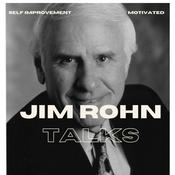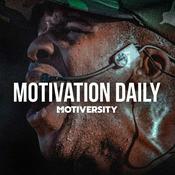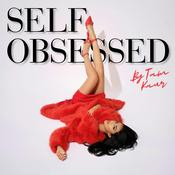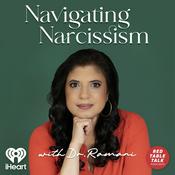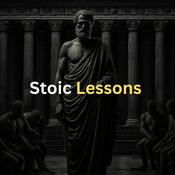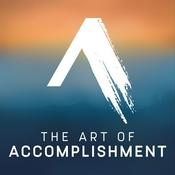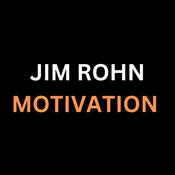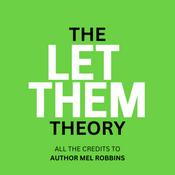53 episodes
- The 1978 musical Evita introduced Eva Perón to a global audience, turning her life into a dramatic narrative of ambition, devotion, and power. Songs like “ Don’t Cry for Me Argentina” helped cement an image of Eva as a near-mythic figure: a woman who rose from obscurity to become the emotional heart of a nation.
Behind the music was María Eva Duarte, born into poverty to a single mother, who navigated class barriers, gender expectations, and political opportunism to reach the very center of Argentine public life.
As First Lady alongside Juan Perón, Eva became both a symbol and an actor in Argentina’s populist experiment. She championed labor rights, built a powerful foundation for social welfare, and played a central role in winning women the right to vote. At the same time, her influence was inseparable from a regime that curtailed press freedom and concentrated power.
To supporters, she was a voice for the poor who felt seen by the state for the first time. To critics, she was a political enforcer of tyranny wrapped in glamour.
In today’s episode, I am joined by Victoria Haddock, a fashion historian whose book The Life of Eva Perón looks into the influence Eva Perón had on fashion, politics, and daily life. In our interview, we delve into the image that Eva created for herself and the legacy we continue to see around the world today.
Hosted on Acast. See acast.com/privacy for more information. - She was called proud. Ambitious. Dangerous. Born a duchess, widowed by war, and mother to two rival kings, Cecily Neville moved through England’s most treacherous century with the calm precision of a strategist. While men fought for thrones, she fought for legacy. Some saw her as the cold matriarch who helped ignite the Wars of the Roses, a woman willing to brand her own grandsons illegitimate to protect her favorite son’s claim. Others saw a survivor. Pious, dignified, and unbroken, even as her family destroyed itself in pursuit of power. Was she a mother or a monarch in disguise? The line between the two has never been clear.
Today, I’m speaking with Annie Garthwaite, author of The King’s Mother, a powerful new novel (and second in her series) that reimagines Cecily’s later years. Years often dismissed or forgotten by history. We talk about how Cecily navigated the dangerous politics of York and Lancaster, how her reputation was shaped by those who feared women’s influence, and what it means to reclaim a voice history tried to silence.
Hosted on Acast. See acast.com/privacy for more information. - What do Elizabeth I of England, Maria Theresa of Austria, Tamar of Georgia, Liliʻuokalani of Hawaii, and the Nawab Begums of Bhopal have in common? Seemingly very little. They are divided by time, language, religion, culture, and family circumstances. But what binds them together is that all reigned as queens in their own right. Women who claimed power in a world that rarely allowed it.
In her latest book, Women Who Ruled the World, historian Dr. Elizabeth Norton takes us across 5,000 years of history to uncover the extraordinary stories of female monarchs. From Merneith, who ruled Egypt nearly five millennia ago, to Elizabeth II, who became the world’s longest-ruling woman, Dr. Elizabeth Norton shows how rare and remarkable it was for a woman to seize the throne and what it meant when she did. These queens were warriors, diplomats, and visionaries, often standing as the only woman in the room, defying expectations and reshaping history.
Today, Elizabeth joins me to discuss how these women not only ruled their nations, but challenged the very idea of power itself.
Hosted on Acast. See acast.com/privacy for more information. - A suffragist, a spiritualist, a stockbroker, an author, and in 1872, the first woman to run for president of the United States, Victoria Woodhull was a visionary who defied expectations.
But her legacy is complicated. Her advocacy of “free love” and willingness to challenge Victorian norms made her infamous in her own time. Her clashes with leading suffragists and her scandalous run ins with the law left her branded as dangerous, even immoral. For decades afterward, she was written out of mainstream histories, remembered more for controversy than for courage.
Now, Eden Collinsworth’s new book, The Improbable Victoria Woodhull, offers a fresh take. In today’s episode, we’ll explore Woodhull’s story and how this new biography helps us see her not just as a heroine or a villain, but as a woman whose choices and contradictions still have something to teach us today.
Content Warning: The topics covered in this episode may not be suitable for all audience. Listener discretion is advised.
Hosted on Acast. See acast.com/privacy for more information. - In today’s episode, I’m joined by Gemma Haigh, now known to many as The Plant Parlour (where she champions cultivating lush botanical spaces), but who first made her mark as curator and researcher on the exhibition Georgian Women: Female Portraits by John Russell RA. During that project, she researched 19 female portraits in Guildford Heritage’s acclaimed Russell collection, interrogating how Russell’s pastel portraits of daughters, wives, and social figures both reflected and resisted gendered expectations in Georgian Britain.
Gemma guides us through the power dynamics embedded in pastel and paint: how Russell’s art objectified and elevated his sitters; what it says about the male gaze and elite femininity; and how those images gain new meaning when reinterpreted through a feminist lens today. We discuss how modern viewers can learn to read these portraits with fresh eyes and explore what their stories reveal about identity, visibility, and portraiture as a form of social control.
Hosted on Acast. See acast.com/privacy for more information.
More Education podcasts
Trending Education podcasts
About Wicked Women: The Podcast
They were adulterers, murderers, mistresses, religious zealots, thieves, and traitors. They were queens, wives, mothers, young, and old. What binds the women together in this podcast is their legacies. These are women who were known during their lifetimes or reinvented after their deaths as wicked women. The lenses of history are often gendered, damning women for some of the same actions that men have been lauded for. The nuances surrounding the women in this podcast were removed in exchange for a one-sided portrayal. Within Wicked Women: The Podcast, I do not attempt to excuse or condone the wrongs committed by these women, instead, the podcast looks at their overarching story and examines the origin of their negative legacy. Alongside a brief biographical overview of the woman, I will be incorporating interviews I have held with experts on the subject to provide multiple and diverse perspectives. Hosted on Acast. See acast.com/privacy for more information.
Podcast websiteListen to Wicked Women: The Podcast, The Jordan B. Peterson Podcast and many other podcasts from around the world with the radio.net app
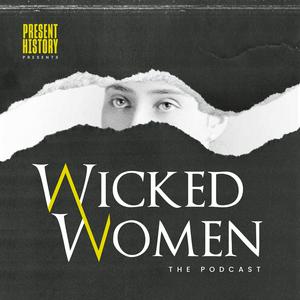
Get the free radio.net app
- Stations and podcasts to bookmark
- Stream via Wi-Fi or Bluetooth
- Supports Carplay & Android Auto
- Many other app features
Get the free radio.net app
- Stations and podcasts to bookmark
- Stream via Wi-Fi or Bluetooth
- Supports Carplay & Android Auto
- Many other app features


Wicked Women: The Podcast
Scan code,
download the app,
start listening.
download the app,
start listening.



